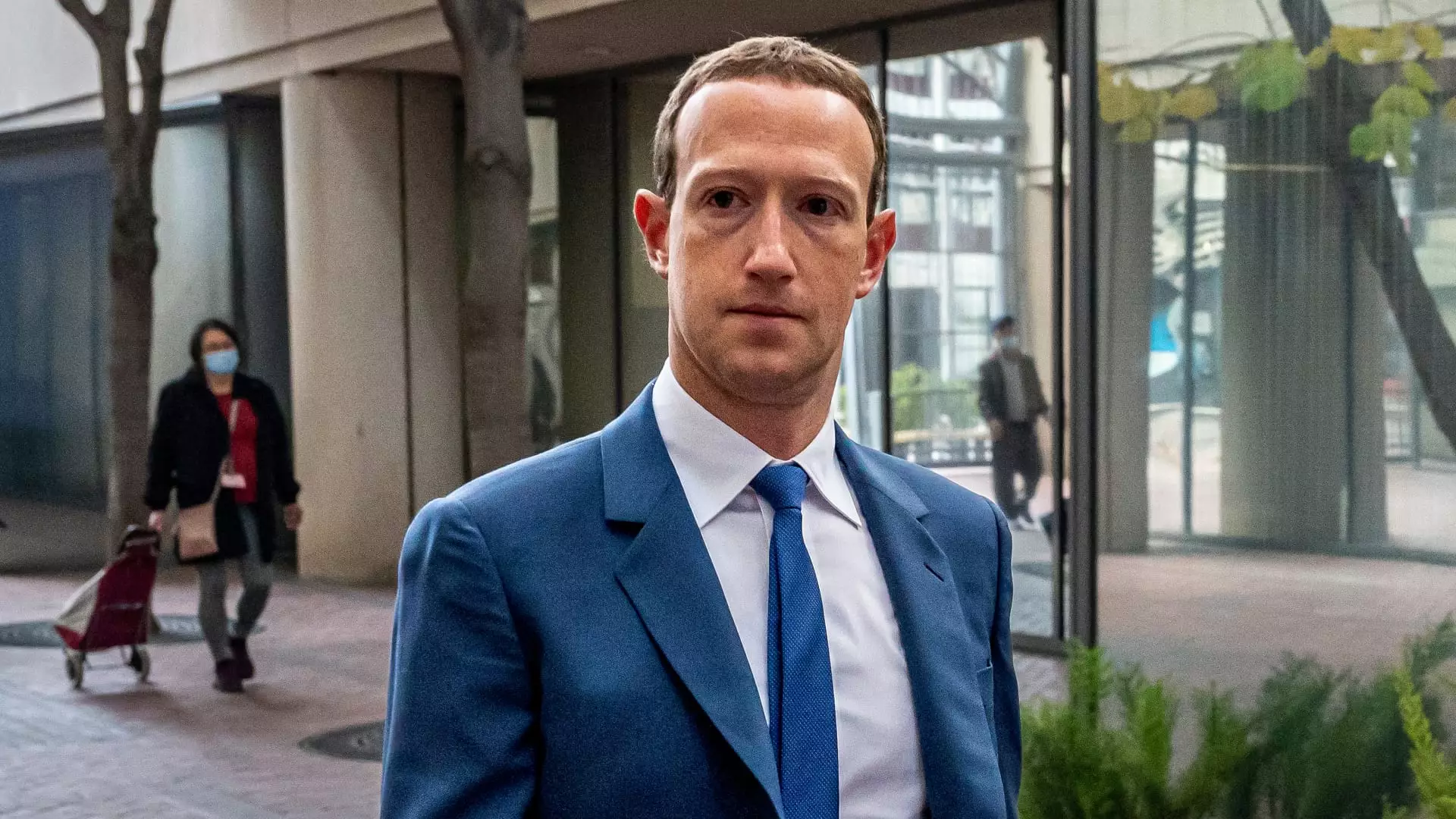Meta, formerly known as Facebook, is intensifying its efforts to combat the spread of misinformation and deepfakes created by artificial intelligence (AI) ahead of upcoming elections worldwide. In a recent announcement, the company revealed its plan to develop tools that can identify AI-generated content on its platforms, including Facebook, Instagram, and Threads. By expanding the scope of these tools, Meta aims to address the growing concern of AI-driven disinformation campaigns that have plagued social media in recent years.
Previously, Meta’s AI tools could only detect AI-generated images produced using its own technology. However, the company now plans to apply these tools to content originating from various AI companies, including industry leaders like Google, OpenAI, Microsoft, Adobe, Midjourney, and Shutterstock. These labels, which will be available in multiple languages on each platform, will help users identify and distinguish between AI-generated and authentic content.
While Meta’s decision to label AI-generated images is commendable, the company acknowledges that the process may take some time to implement fully. Nick Clegg, Meta’s President of Global Affairs, stated in a blog post that they would begin labeling AI-generated images from external sources “in the coming months,” with ongoing efforts intended to span throughout the next year. This extended timeline is necessary to collaborate with other AI companies to establish common technical standards for identifying AI-generated content accurately.
Tackling Election-Related Misinformation
The urgency to combat AI-generated deepfakes stems from the impact of election-related misinformation that surfaced after the 2016 US Presidential Election. Foreign actors, notably from Russia, exploited social media platforms like Facebook to disseminate highly charged and inaccurate content, causing a crisis for the company. Since then, Facebook has faced numerous instances of misinformation, such as during the Covid-19 pandemic, where it became a breeding ground for the spread of false information. The rise of Holocaust deniers and QAnon conspiracy theorists further highlighted the platform’s vulnerability to such content.
With the 2024 election cycle fast approaching, Meta understands the need to demonstrate preparedness against bad actors and their potentially advanced use of technology. While some AI-generated content can be easily identified, many deepfakes pose a significant challenge in detection. Services claiming to identify AI-generated text have been found to exhibit bias against non-native English speakers, further complicating the issue.
To mitigate uncertainties surrounding AI-generated content, Meta is primarily collaborating with other AI companies that utilize invisible watermarks and specific metadata in their platform-generated images. These measures seek to minimize the risk of misinformation by ensuring that AI-generated content can be traced back to its source. However, Meta acknowledges that watermarks can be removed, leading the company to explore solutions that make it more difficult to alter or remove these invisible markers.
The Challenge of Audio and Video Content
Monitoring AI-generated audio and video content poses a significant challenge compared to images. Currently, there is no industry standard for AI companies to incorporate invisible identifiers into audio and video files. Consequently, Meta faces difficulty in detecting signals and labeling externally-generated content. To address this issue, Meta plans to introduce a voluntary disclosure feature for users who upload AI-generated video or audio. Failure to disclose AI-generated content may result in penalties imposed by the company.
Meta is committed to promoting public awareness and combating the material deception caused by digitally created or altered content. In cases where AI-generated content poses a high risk of deceiving the public on significant matters, Meta may add more prominent labels to further alert users. These measures aim to foster greater transparency, enabling individuals to make informed decisions and critically assess the content they encounter on Meta’s platforms.
As the prevalence of AI-generated deepfakes continues to rise, Meta’s expansion of tools to combat this issue marks a crucial step in protecting the integrity of information shared on social media platforms. By collaborating with other AI companies and implementing technical standards, Meta seeks to bolster its defenses against actors who manipulate technology for malicious purposes. However, the challenges of identifying audio and video content generated by AI demonstrate the ongoing need for innovation and industry cooperation in combatting the spread of misinformation in an ever-evolving digital landscape.


Leave a Reply